Deng Xiaoping - Age of Extremes
But as the West went moony, on the other side of the Earth’s great divide, daily life was descending into another political nightmare.
The People’s Republic of China, July 1967. Fanatical gangs, known as the Red Guards, were hunting down anyone suspected of betraying the ideas of the Chinese Communist leader, chairman Mao Ze Dong. The name of this victim, Deng Xiaoping. One day, he’d become the most powerful man in China, the leader who would turn the country into the economic powerhouse that it is today.
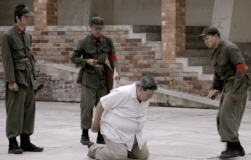
Deng was one of the original Chinese communists. He’d been a guerrilla fighter, he’d led armies for Mao from the early days right through to the final victory, and Mao liked him a lot. He called him “the little man” and he’d drawn Deng into the tight group of people who really ran China, but now Deng was on his knees being screamed at by the Red Guards, the fanatical footsoldiers of the wildest social experiment ever to hit modern China, the Cultural Revolution.
The Cultural Revolution meant a vast purge of anyone thought to stand in the way of Chairman Mao’s long march towards a Communist utopia.
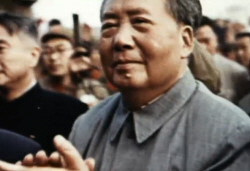
Once again, innocent individuals were being sacrificed to the big idea of a deluded tyrant. Mao called for a war against the four olds - old thinking, old culture, old customs, old habits.
It’s estimated that millions of people died in the Cultural Revolution. The Chinese government itself says that 100 million people suffered. Mao had quite deliberately unleashed social anarchy, a war against the past, a war against moderation, a war against common sense.
Mao’s warped economic reforms had led to famines in which up to 45 million people died. Deng Xiaoping fell foul of Mao’s Red Guards for daring to suggest there might be a better way of running the economy.
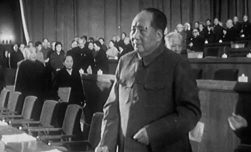
At the 1961 party conference, Deng argued that economic growth mattered more than Communist theory and he quoted an old peasant saying, “It doesn’t matter if the cat is black or white. If it catches mice, it’s a good cat.”
Now, this was dangerous stuff. It suggested that he thought there was an alternative way for China to modernise, not necessarily Chairman Mao’s way.
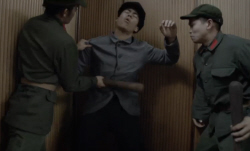
After his public denunciation, Deng Xiaoping was exiled to work in a tractor factory. Then the red guards came looking for his son, Pufang, a brilliant student at Beijing University. He was ordered to confess to his father’s treason. The guards told him, “The window is your only exit”.
Pufang was paralysed but was refused proper care in hospital. Deng desperately begged for news of his son. Eventually, Pufang was sent to join him in exile, where the old Communist became a good father, trying, unsuccessfully, to massage his boy back to health.
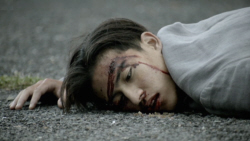
In time, Mao relented, and Deng was welcomed back to Beijing as if nothing had happened. When Mao died in 1976, the great survivor seized the chance of a political comeback.
Within two years, Deng was the most powerful man in China. Deng’s moment had come, and what a moment! He took China right round towards roaring full-throttle capitalism.
Under Deng, China’s repressive state continued, but he began welding together the two big ideas that had divided the world in the 20th century. For him, capitalism in a Communist country wasn’t a contradiction. It was a pragmatic solution. Since Deng’s reforms were introduced China’s economy has been growing at an average of nearly 10% a year every year. It’s on track to become the world’s biggest economy by 2016.
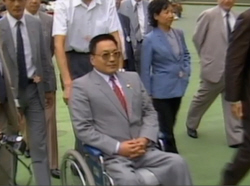
But there’s a twist to the story, because Deng Xiaoping wasn’t the only survivor. From his wheelchair, his son, Deng Pufang, is today one of the most influential voices in China for humanitarianism and, in 2008, he was part of the team behind the Beijing Olympics.
The father’s message was all about economic growth, and that is very important. But the son’s message is about the importance of compassion, and, in the end, that may matter more.
The great stand-off between dynamic capitalism and tottering communism came to a dramatic end with the fall of the Berlin Wall in 1989. With the Cold War over, there was a wild talk about the end of history. Mao, Stalin and Hitler had all attempted to reshape humanity using political terror.
But now it seemed there was only one way forward - capitalism.
